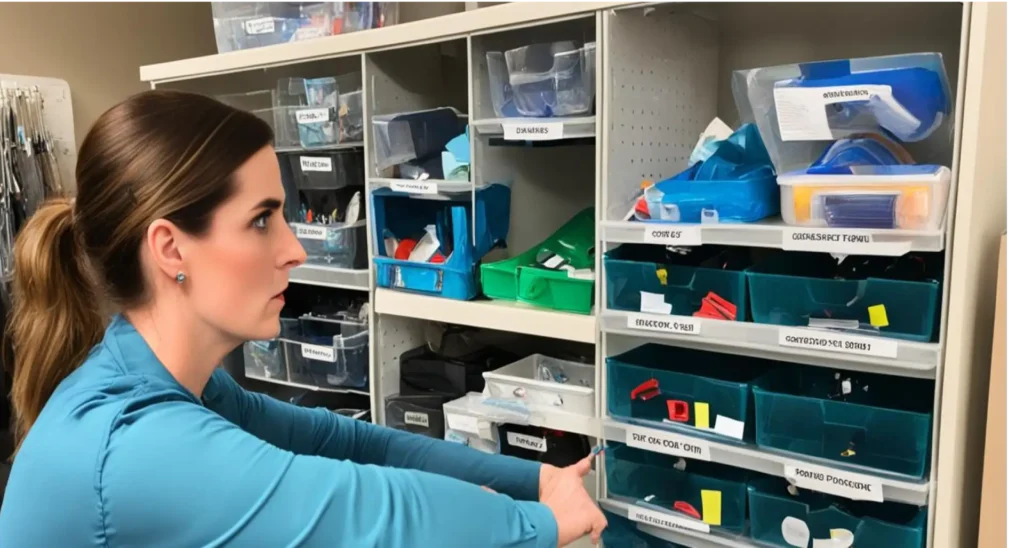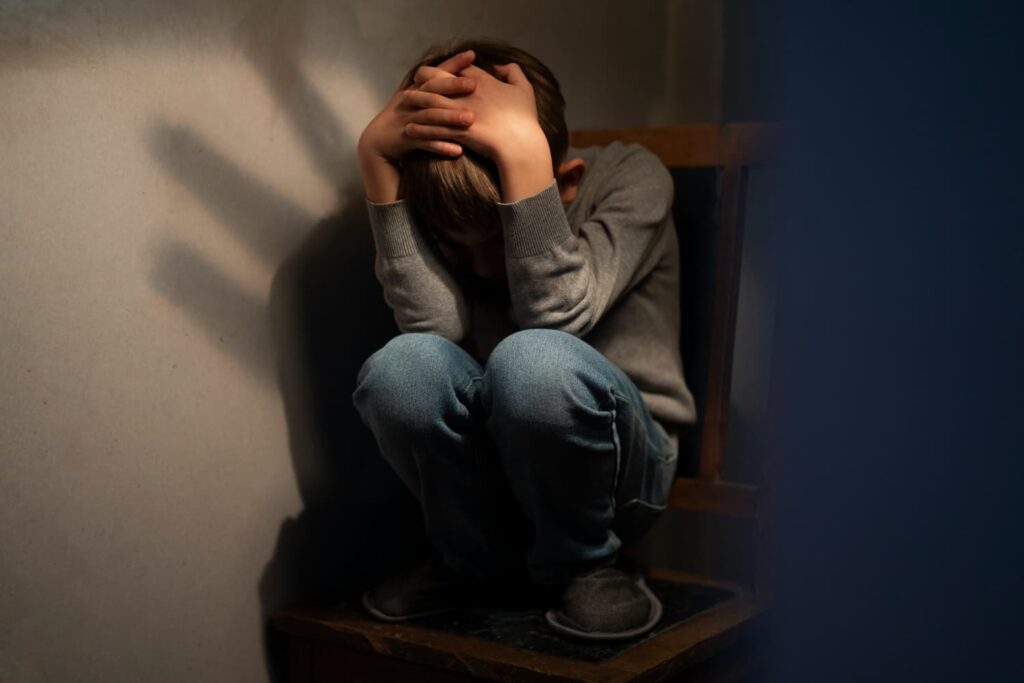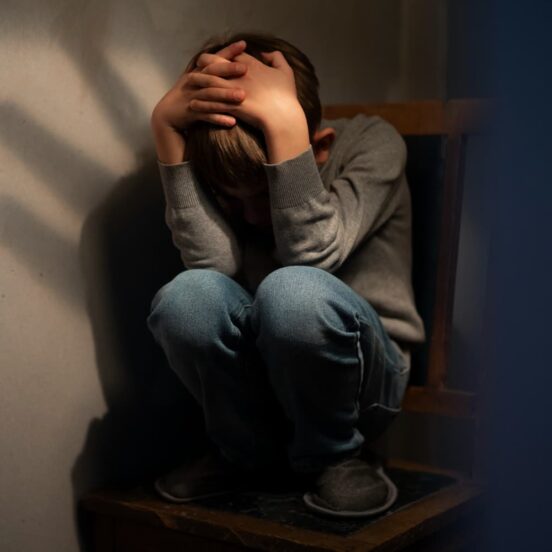OCPD and Emotional Abuse: Understanding the Link
Obsessive Compulsive Personality Disorder (OCPD) is a mental health issue. It involves a constant need for order, perfection, and control. These traits might seem good, but they can hurt relationships. This often leads to emotional abuse.
Emotional abuse hurts a person’s emotional health. It leaves deep scars that can last even after the abuse stops. Looking into how OCPD and emotional abuse connect helps us understand these harmful patterns. It also shows why getting help through therapy is key to healing.
Key Takeaways
- Understanding OCPD is essential in recognizing emotional abuse patterns.
- Emotional abuse can stem from the controlling behaviors associated with OCPD.
- Awareness of symptoms can lead to healthier relationship dynamics.
- Therapy plays a crucial role in addressing both OCPD and emotional abuse.
- Support systems are vital for those affected by OCPD and emotional trauma.
What is Obsessive Compulsive Personality Disorder (OCPD)?
OCPD is a condition that changes how someone lives, works, and relates to others. It’s important to understand this disorder to grasp its effects on mental health.
Defining OCPD
OCPD makes someone always want things done a certain way. It’s different from OCD, which involves unwanted thoughts and actions. People with OCPD often find it hard to accept changes or other people’s views.
Common Symptoms
Knowing the signs of OCPD helps us see its impact on mental health. Some common signs are:
Excessive detail orientation: They might spend too much time on small details, missing the overall view.
Reluctance to delegate: They don’t like to let others do tasks, because they want total control.
Inflexibility with rules and schedules: They stick to strict rules and schedules, making it tough to adjust when things change.
Difficulty expressing emotions: It’s hard for them to show their feelings, which can make relationships tough.
Understanding Emotional Abuse
Emotional abuse is a harmful way to control or belittle someone. It’s important to know about it to see how it affects mental health.
What Constitutes Emotional Abuse?
Emotional abuse uses many tactics to make someone feel bad about themselves. These include:
- Verbal assault, like calling someone names or making them feel small.
- Constant criticism that lowers their self-esteem.
- Controlling behaviors, such as watching what they do or cutting them off from others.
- Gaslighting, which makes them doubt their own reality.
These actions create a toxic space. They change how the victim sees themselves and hurt their mental health a lot.
Impact on Mental Health
Emotional abuse has big effects on mental health. Victims might feel:
Depression, with ongoing sadness and no hope.
Anxiety, feeling too worried or scared about things or people.
Less self-worth, which can stop them from growing in life.
Long-term emotional trauma, affecting their relationships and happiness.
Knowing about these effects helps us understand and help those affected. It shows why we must tackle emotional abuse well.
The Link Between OCPD and Emotional Abuse
Understanding how ocpd and emotional abuse are linked shows us the harm certain behaviors can cause in relationships. People with ocpd often want control and set very high standards. This can make their partners feel always not good enough. It’s key to see these patterns to deal with the emotional harm they cause.
How OCPD Behaviors Contribute to Emotional Abuse
OCPD behaviors can lead to emotional abuse in relationships. Partners may feel forced to always meet impossible standards, making them feel not good enough. This can hurt the way they talk and feel close, leaving them feeling alone.
Control Issues: People with OCPD might want to do things their way, ignoring what their partner likes.
Unyielding Critique: Always being criticized and having high expectations can cause ongoing emotional pain.
Imposed Guilt: Feeling guilty for not meeting someone’s demands can start a cycle of emotional abuse.
Case Studies and Examples
Real-life stories show how OCPD affects close relationships. Many partners of those with OCPD feel lost and sad. They talk about dealing with endless expectations and feeling pushed away, leading to a deep sense of duty that’s overwhelming.
| Behavior | Effect on Partner |
|---|---|
| Imposing Strict Routines | Feeling trapped and losing freedom |
| Frequent Criticism | Lowering self-esteem and causing emotional pain |
| Minimal Emotional Expression | Feeling more alone and confused |
Symptoms of OCPD in Relationships
It’s key to know how OCPD affects relationships. People with Obsessive Compulsive Personality Disorder (OCPD) can hurt their bond with others. Their actions can make being close hard for those around them.
Identifying Key Symptoms
Some common signs of OCPD in relationships are:
Excessive need for control: This can make partners feel trapped and belittled.
Difficulties with emotional expression: Not being able to share feelings can make partners feel alone and ignored.
Perfectionism: Always wanting everything to be perfect can stress out both partners, causing frustration.
How These Symptoms Affect Partners
These symptoms can lead to emotional abuse in a relationship. Partners may feel:
Feeling unvalued: The person with OCPD might make their needs more important, making partners feel less important.
Emotional drain: Always trying to meet the perfectionist demands can be very tiring.
Reduced intimacy: Not being open can make it hard to feel close to each other.

A person with OCPD organizing objects in a very specific and precise manner, causing frustration and tension in their partner’s facial expression.
It’s important to spot and deal with OCPD symptoms for a healthy relationship. Knowing about these signs can help improve communication and support each other emotionally.
Emotional Trauma Associated with OCPD
Emotional trauma linked to OCPD comes from tough experiences. These include being criticized and needing control in relationships. It’s important to see how these experiences hurt your mental health and relationships.
Understanding the Trauma
Emotional trauma shows up in many ways, leaving deep scars. People with OCPD might feel more anxious and not good enough. These feelings can hurt how you see yourself and connect with others. It’s key to work on these issues to grow and heal.
Long Term Effects of Emotional Trauma
The effects of emotional trauma last a long time. You might face:
- Persistent anxiety and stress
- Low self-esteem and self-worth
- Difficulties in maintaining healthy relationships
- Challenges in expressing emotions
Seeing how emotional trauma and OCPD are linked helps find support. Getting help from mental health experts can offer great ways to deal with these issues.
Treatment Options for OCPD and Emotional Abuse
Dealing with OCPD and emotional abuse needs a mix of therapies, medications, and support. You can look into different therapy types made for OCPD’s challenges. Medications and support can also make treatment work better.
Types of Therapy Options
Cognitive-Behavioral Therapy (CBT) is great for changing the strict thinking patterns of OCPD. It helps you spot and change negative beliefs. Dialectical Behavior Therapy (DBT) is also useful, focusing on managing emotions and social skills. This can help with emotional abuse and its effects.
Trying these therapies can really help you get better.
Medication and Support Strategies
Medicines can be a big part of your treatment, like antidepressants or anti-anxiety drugs for OCPD symptoms. Therapy and medication together make a strong treatment plan. Support groups and educational materials are also key to recovery.
They help you understand OCPD better and give you a community to support you.
Supporting Someone with OCPD
Supporting someone with OCPD means being empathetic and assertive. It’s important to understand their struggles with emotional abuse. This understanding helps create a safe space for them to share their feelings and concerns.
How to Provide Effective Support
Supporting someone with OCPD can be tough but rewarding. Here are some tips:
- Recognize their needs and emotions, validating their feelings rather than dismissing them.
- Encourage open dialogue about their anxiety and stressors, enhancing communication between you.
- Set clear boundaries to avoid enabling harmful behaviors, ensuring a balanced dynamic.
- Offer consistent reassurance to help them feel secure and understood.
Communicating with Understanding
Communication can be tricky, especially when dealing with emotional abuse. Here’s how to improve it:
- Use “I” statements to express your feelings without sounding accusatory, promoting a positive exchange.
- Practice active listening, allowing them to share their thoughts without interruption.
- Be patient, acknowledging that change takes time and setbacks may happen.
- Seek to understand their perspective, fostering a supportive atmosphere for dialogue.
By using these support strategies and promoting open communication, you can greatly help someone with OCPD. Strong, empathetic relationships can lead to healing and empowerment. They can help them on their emotional journey towards a better life.
Coping Mechanisms for Individuals with OCPD
Finding ways to cope is key for those with Obsessive Compulsive Personality Disorder (OCPD). Using healthy strategies can greatly improve mental health and well-being. Start by learning to relax and accept life’s imperfections.
Healthy Coping Strategies
Setting realistic expectations in daily life can ease the stress often tied to OCPD. Here are some coping methods that can help you bounce back:
- Enjoy hobbies that make you happy and let you be creative.
- Work on setting achievable goals to lessen feelings of not being good enough.
- Learn to accept your flaws and those of others.
- Make a schedule that includes time for fun and taking care of yourself.
Mindfulness and Relaxation Techniques
Mindfulness and relaxation techniques are great for handling anxiety from OCPD. Try adding these to your life:
- Do meditation every day to improve focus and lower stress.
- Try deep breathing to calm your mind.
- Use progressive muscle relaxation to ease physical tension.
- Look into yoga or tai chi for a balance of mind and bod

Create an image depicting a person practicing meditation in nature, surrounded by peaceful scenery such as trees, mountains and a serene stream. The person is sitting in a comfortable position with their eyes closed and hands resting gently on their knees. The colors in the scene are soft and calming, contributing to the tranquil atmosphere. A small bird perched on a nearby branch adds to the peaceful ambiance of the moment.
By adding these coping methods to your daily life, you might see better mental health and more peace. This can lead to healthier relationships and a more rewarding life.
Recognizing Toxic Relationships
Toxic relationships can take many forms, often involving emotional abuse, especially with OCPD. It’s key to know the signs of emotional abuse to spot when you or someone you know is in a bad situation.
Signs of Emotional Abuse
Emotional abuse can look different. Here are some common signs:
- Frequent critical comments that undermine your self-worth.
- A persistent sense of fear surrounding your partner’s reactions.
- Manipulative behavior aimed at controlling aspects of your life.
- Isolation from friends and family to maintain dependence.
- Unreasonable expectations leading to feelings of inadequacy.
When to Seek Help
Spotting emotional abuse is the first step to getting better. It’s crucial to see how it affects your mental health. If these issues cause you a lot of distress, it’s time to get help. There are resources out there for dealing with OCPD in relationships. Talking to a mental health expert can give you the tools and advice you need to fight emotional abuse.
| Signs of Emotional Abuse | Impact on Mental Health |
|---|---|
| Frequent criticism | Low self-esteem |
| Manipulative behaviors | Increased anxiety |
| Isolation from loved ones | Feelings of hopelessness |
| Control over personal decisions | Depression and withdrawal |
Real-Life Impact of OCPD and Emotional Abuse
OCPD and emotional abuse deeply affect people’s lives. Personal stories show the daily struggles and the emotional cost. Those with OCPD often face isolation and conflict in relationships, making their mental health worse. These stories help us see the many sides of recovery and how people deal with this tough journey.
Personal Stories of Struggle
People with OCPD often feel trapped by harsh criticism or high expectations. They may feel misunderstood by their partners, leading to more tension at home. These stories show why empathy and awareness are key in relationships with OCPD. It’s important to talk openly about these issues.
Feelings of isolation come from communication problems.
Frustration grows from too many expectations.
Conflict happens because of a lack of understanding about the disorder.
Pathways to Recovery
Getting over OCPD and emotional abuse takes different steps. Therapy offers a safe place to look at the issues. Support groups create a community with others who understand. These steps can help rebuild mental health and improve relationships.
- Seek therapy to address both OCPD and emotional abuse effects.
- Join support groups to share experiences and strategies.
- Develop healthy communication skills to enhance relationship dynamics.
| Aspect | Impact of OCPD | Impact of Emotional Abuse |
|---|---|---|
| Isolation | Feelings of being misunderstood | Severe loneliness and distress |
| Communication | Difficulty expressing needs | Fear of conflict, leading to silence |
| Relationships | Strain due to high expectations | Trust issues and emotional withdrawal |
These real-life stories show the big impact of OCPD and emotional abuse. They also show the strength of those fighting for recovery. Each story is a reminder that understanding and compassion can really change lives.
Conclusion
Understanding how OCPD and emotional abuse are linked is key to helping people get better. When you spot emotional abuse signs, both those with OCPD and their partners can start healing. This knowledge helps break the cycle of trauma that harms mental health.
Getting the right treatment is crucial for healing. This can include therapy, support groups, or medication. These methods can greatly help those with OCPD and emotional abuse. It’s also important to learn ways to deal with emotions that make you stronger.
Spreading the word about OCPD and emotional abuse helps everyone grow. It makes relationships healthier. By focusing on mental health and seeking treatment, you can move past past traumas. This leads to a happier life without the burden of emotional abuse.
FAQ
What is OCPD and how does it differ from OCD?
OCPD stands for Obsessive Compulsive Personality Disorder. It’s about needing everything to be perfect and in order. Unlike OCD, which is about unwanted thoughts and actions, OCPD is more about controlling situations and relationships.
What are some common symptoms of OCPD?
People with OCPD often want total control and pay too much attention to details. They stick to strict rules and schedules. They also find it hard to show their feelings, which can strain relationships and cause stress.
Can you explain what emotional abuse entails?
Emotional abuse is about using words or actions to control or hurt someone. It can be constant criticism, putting someone down, or controlling their actions. It harms a person’s self-esteem and emotional health.
How can OCPD lead to emotional abuse in relationships?
OCPD traits like needing everything perfect can make relationships tough. They might set too high standards, leading to emotional abuse. This happens when partners feel they can’t meet these standards and are always criticized.
What emotional trauma can someone with OCPD experience?
People with OCPD might feel bad about themselves because of constant criticism and control. This can make them anxious and make it hard to have healthy relationships later on.
What treatment options are available for OCPD and emotional abuse?
There are therapies like Cognitive Behavioral Therapy (CBT) and Dialectical Behavior Therapy (DBT) for OCPD. These help change thought patterns and improve how people interact with others. Sometimes, medicine is given to help with anxiety or depression.
How can I support someone who has OCPD?
Supporting someone with OCPD means being patient and understanding. It’s important to respect their feelings but not let it go too far. Talking openly and kindly can help make things better.
What are some healthy coping mechanisms for individuals with OCPD?
Good ways to cope include setting achievable goals, enjoying hobbies, and accepting that nothing is perfect. Techniques like meditation and deep breathing can also help with anxiety.
How can I recognize signs of emotional abuse in a relationship affected by OCPD?
Look out for constant criticism, feeling not good enough, and fear of your partner’s reactions. Knowing these signs is key to getting help when you need it.
What are some pathways to recovery for those affected by OCPD and emotional abuse?
Getting better often means trying therapy, finding support groups, and building healthy relationships. Sharing stories can also help others feel less alone and more hopeful.















